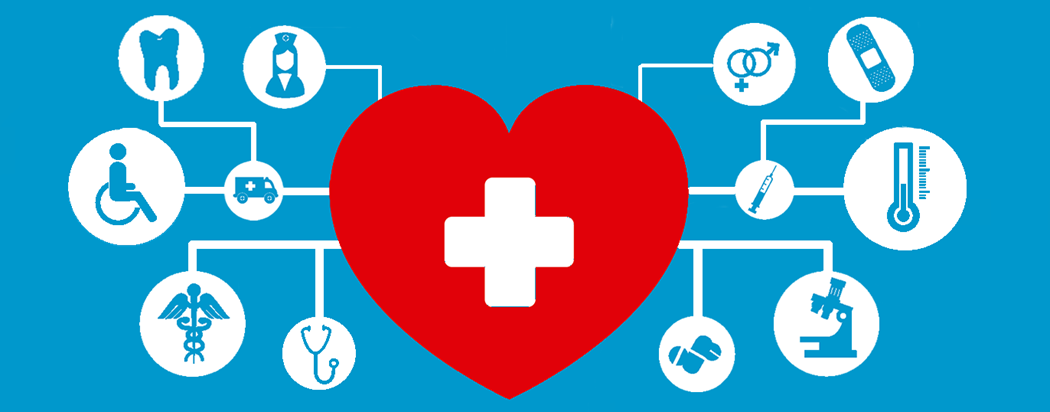
There are many options for sonography professionals. You can work as a sonographer in a hospital, an emergency department or outpatient facility, or in a research lab. They work forty hours a week. The salaries are very good. Sonographers are in great demand. The Bureau of Labor Statistics predicts that 12,000 sonographers will be available in the next ten decades.
Sonographers are trained to create pictures of the structures inside the body with a machine called an ultrasound transducer. Sonographers use sound waves for images of organs. These images are then shown to medical teams for analysis. Sonographers may work overnight or on weekends.
Sonographers must have excellent interpersonal communication skills. They should also be kind and understanding towards patients. They can make a big difference in a patient's life. Non-invasive procedures can also be performed by sonographers. Some sonographers specialize in certain areas, such as pediatrics or cardiology.

Sonographers typically earn an Associate of Science degree. The majority of states require them to be certified in one or more of five specific ultrasound areas. They must also pass the national exam. Many sonographers also pursue further education to advance in their careers.
Sonographers are able to choose from a variety of specialties like neurology, pediatrics or musculoskeletal. Each specialty requires different techniques and equipment. Sonographers are trained in non-invasive procedures. They may also choose to continue their education in research. The Society for Vascular Ultrasound, a professional association, is dedicated to the advancement of this field.
The American Registry for Diagnostic Medical Sonography has many resources to help you advance your career. The organization is committed to supporting sonographers and educating the medical community. You can also join one of their many Facebook groups. Join ARDMS to learn how you can get started in your career as a sonographer.
A number of major employers are hiring sonographers. These include Kaiser Permanente and Oregon Health and Science University. California also has a lot of companies. These include Cedars-Sinai and Children's Hospital of Los Angeles. These are the state's top employers.

The average salary for sonographers in North Dakota is two percent lower than the national median. This is lower than the other states, however. Michigan's median income is eight percent less than the national average. They also make 16 percent less than the national median in Mississippi. Sonographers are being hired by many organizations in Michigan. Trinity Health, McLaren Healthcare and Grace Hospice are some of these organizations.
Hawaii is home to some top salaries for sonographers. Hawaii is also home to the highest-paid state for sonographers. On average, sonographers in Hawaii make 31 percent more than the national mean. Kaiser Permanente employs the best sonographers.
Sonographers also work for the Department of Veterans Affairs. They also work with Quality Medical Imaging and Dartmouth-Hitchcock Medical Center. Other employees work at Banner Health, St. Mary's Health System and St. Luke's Hospital.
FAQ
How do I become a creative health professional?
You have many options to become a creative healthcare professional. Some people start off as students. Others begin their careers in other areas such as engineering or business.
Some students choose to focus on a specific topic such as health policy, leadership, management or leadership. Others decide to take an elective course that explores different perspectives on health and health care.
No matter what pathway you choose, there are many ways to learn about topics in health and healthcare. These include readings, group discussions and assignments as well lectures. There are workshops, conferences, as well as seminars.
When you complete the program, your knowledge will give you the skills to work with clients, colleagues, and patients in any role within the health system.
You might even be able to go on to get a doctorate.
How can we improve our healthcare system?
We can improve the health system by making sure that everyone gets high-quality healthcare, no matter where they live or what kind of insurance they have.
So that children don't get preventable diseases, like rubella, measles and mumps (MMR), we need to ensure that they all receive the required vaccinations.
We must keep working towards reducing the costs of healthcare and ensuring that it remains easily accessible for all.
What effect will the absence of Medicare have on the health-care industry?
Medicare is an entitlement program which provides financial assistance for low-income people and families who are unable to afford their premiums. This program is used by more than 40 Million Americans.
Without this program, millions of Americans would lose coverage because some private insurers would stop offering policies to those with pre-existing conditions.
What should we know about health insurance
Keep track of any policy documents you have if your health insurance covers you. You should ensure you fully understand your plan. Ask questions whenever you are unclear. Ask your provider to clarify it or call customer service.
When you need to use your insurance, don't forget to take advantage your plan's deductible. Your deductible represents the amount you will have to pay before your policy begins covering the rest.
What is the difference between health system and health services?
The scope of health systems goes beyond just providing healthcare services. They encompass everything that happens in the overall context of people’s lives, such as education, employment, housing, and social security.
Healthcare services, on the other hand, focus on delivering medical treatment for specific conditions such as cancer, diabetes, mental illness, etc.
They may also refer the provision of generalist primary health care services by community-based professionals working under an NHS hospital trust.
Statistics
- Foreign investment in hospitals—up to 70% ownership- has been encouraged as an incentive for privatization. (en.wikipedia.org)
- About 14 percent of Americans have chronic kidney disease. (rasmussen.edu)
- The health share of the Gross domestic product (GDP) is expected to continue its upward trend, reaching 19.9 percent of GDP by 2025. (en.wikipedia.org)
- Over the first twenty-five years of this transformation, government contributions to healthcare expenditures have dropped from 36% to 15%, with the burden of managing this decrease falling largely on patients. (en.wikipedia.org)
- The healthcare sector is one of the largest and most complex in the U.S. economy, accounting for 18% of gross domestic product (GDP) in 2020.1 (investopedia.com)
External Links
How To
What is the Healthcare Industry Value Chain
The entire healthcare industry value-chain includes all activities related to providing healthcare services to patients. This includes all business processes at hospitals and clinics. It also includes supply chains that connect patients to other providers like pharmacists and insurance companies. The final result is a continuum in care that begins with diagnosis, and ends with discharge.
The value chain is made up of four major components:
-
Business processes - These are the tasks performed throughout the whole process of providing health care. A physician might order medication for a patient, then perform an examination. Each step must always be done quickly and accurately.
-
Supply Chains - All the organizations involved in making sure that the right supplies reach the right people at the right time. A typical hospital has dozens of suppliers, including pharmacies, lab testing facilities, imaging centers, and even janitorial staff.
-
Networked Organizations - To coordinate these various entities, there must be some form of communication between the different parts of the system. Hospitals typically have many departments, each with its own set of offices and phone numbers. Employees will be able to access a central point for information and updates in every department.
-
Information Technology Systems- IT is vital in ensuring smooth business processes. Without it, everything could go down quickly. IT is also a platform that allows for the integration of new technologies into the system. Doctors can connect to a secure network connection in order to integrate electronic medical records into their workflow.